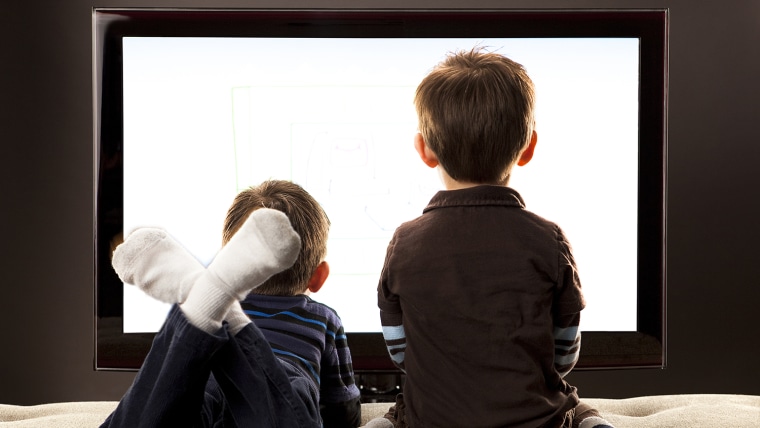Toddlers who spend a lot of time in front of a TV may be at greater risk of being bullied later in life, a new study suggests.
As the number of hours of TV watching increased, so did the risk of being victimized by classmates in middle school, according to the study published in the Journal of Developmental & Behavioral Pediatrics.
“Television to me is a pleasant pastime,” said study coauthor Linda Pagani, a psychologist and professor in the school of psycho-education at the University of Montreal and a researcher at the brain health division of the Sainte-Justine’s Children’s Hospital. “But too much of one pastime can come at the detriment of another.”

When you go beyond two hours of TV watching, it takes away from more engaging activities, Pagani said. Most important of those would be direct interactions with parents, where children learn how socialize and develop “emotional intelligence,” she added.
“Emotional intelligence is driven by social experience,” Pagani explained. “I talk, you listen. You talk, I listen. We look each other in the eye. Eye contact is a really powerful mode of communication. It tells a lot about people’s internal states. Kids can grow up with deficits in their emotional skills.”
And that, Pagani said, may leave them more vulnerable to bullying.
Pagani and her colleagues followed 991 girls and 1,006 boys who were taking part in the Quebec Longitudinal Study of Child Development. When the children were 29 months old, the researchers queried parents about the kids’ TV viewing habits, including DVD watching. Parents were also asked about their children’s behavior — how impulsive or aggressive they were, for example.
Then in the sixth grade, the children filled out a survey that asked questions about how frequently other children called them names or said mean things to them; how often they were excluded from play; how often they were pushed, hit or kicked; how often other children made fun of them or laughed at them, and how often they were forced to give up something that belonged to them.
When the researchers analyzed the two sets of data, they found that for each additional hour a child watched TV, there was an increase of 11 percent in the amount of bullying they experienced in middle school.
And that was true even when the researchers took into account factors such as the child’s own behavior and cognitive abilities, as well as family characteristics such as income, family functioning and the mother’s level of education.
While there is no question that the study shows a strong association between TV watching in toddlers and later victimization by classmates, it’s not clear what the exact mechanism of that is, experts said.
“It’s a really nice study,” said Alan Kazdin, Sterling professor of psychology and psychiatry and professor of child psychology at Yale University. “But they are taking a big leap when it comes to causation. Children who sit in front of a TV all day tend not to be gregarious and they are more prone to depression, for example.”
Patrick Tolan, director of the Youth-Nex Center at the University of Virginia and a professor in UVA's Curry School of Education, put it this way: “It’s impressive that you can see long-term effects of TV watching. But it’s not clear whether TV watching is directly related to victimization, or to a lot of poor performance and poor functioning and victimization is just one aspect of that.”
Tolan pointed out that some of the negative effects of TV can be mitigated by parents watching along with a child and then discussing the content. For example, he said, “If someone is being pushed around, a parent might say, ‘He should get help from the teacher.’”
That way, Tolan said, TV watching is not completely passive and can actually become a learning experience.
Kazdin said he hopes the study doesn’t lead parents to focus solely on limiting TV time as a strategy to protect kids from being bullied.
One of the best ways to protect children against bullying is to encourage them to pursue something they are interested in, be it sports or music or dance or another activity, Kazdin said. “Find out what makes their eyes light up,” he added.
When kids get to be good at something, it builds their confidence, “and that is an enormous protection,” Kazdin said.
For her part, Pagani said she doesn’t want the new findings to make parents feel bad, but rather to alert them to the impact of too much TV. “Knowledge is power,” she said.